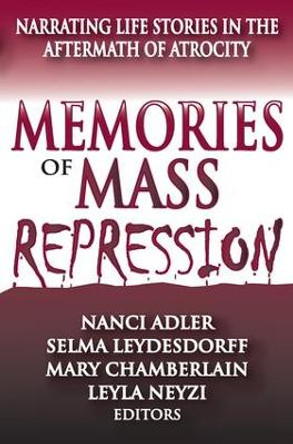Description
Offers a narrative approach to post-conflict intervention, showing how legalism following mass violence encourages dangerous binaries.
About the Author
Sarah Federman is an Assistant Professor in the School of Public and International Affairs at the University of Baltimore, an instructor at the Foreign Service Institute, and a Fulbright Peace and Conflict Specialist. She is the co-editor of Introduction to Conflict Resolution: Discourses and Dynamics (2019) and the author of Last Train to Auschwitz: The French National Railways and the Journey to Accountability (2021). Ronald Niezen is Distinguished James McGill Professor of Anthropology and Associate Member of the Faculty of Law at McGill University. He has researched an Islamic reform movement in West Africa, justice campaigns in indigenous communities in Canada, and in a variety of international organizations. He has held visiting positions at Abo Akademi University in Finland and the Weatherhead Center for International Affairs at Harvard University. His many books include The Origins of Indigenism (2003), Truth and Indignation (2017), and #HumanRights (2020).
Reviews
'We think we have a good understanding of the role narratives of hate, degradation, and demonization play in setting the conditions for mass atrocities and genocidal violence. We know far less about the role narratives continue to play in their aftermath. Roles such as victim, perpetrator, hero, and traitor seem self-evident and fixed. They are not, these authors argue. Yesterday's hero is today's perpetrator, yesterday's perpetrator is sometimes also a victim, and yesterday's perpetrator is tomorrow's hero. Using rich case studies, these chapters deepen our understanding of post-atrocity narrative, by deconstructing the roles of victim and perpetrator, and unsettling the "security of binaries" on which the conception of these roles, our understanding of "what happened", and our missions in transitional justice, reconciliation, and peacebuilding, all depend. The cost of ignoring the force of post-atrocity narrative is the risk of setting the conditions for the next wave of incitements and violence.' Kevin Avruch, Jimmy and Rosalynn Carter School of Peace and Conflict Resolution, George Mason University
'Federman and Niezen's bold introduction to this volume forces us to confront the bitter reality that discourse, in the aftermath of mass violence, is overrun with brittle, self-serving narratives that deepen harm and complicate the path to healing. A remarkably diverse set of cases illustrates this point and offers evidence of how novel language, non-binary thinking, and innovative technology combine to forge new narrative ecologies where the stories told have a chance of promoting peace. Bravo!' Susan F. Hirsch, Vernon M. and Minnie I. Lynch Chair of Conflict Analysis and Anthropology, George Mason University
'In this remarkable book, the authors help us see the high cost we are paying for oversimplifying conflict and post conflict narratives and highlight the unintended consequences of the binary frameworks we use when looking for justice. What does it take to be able to put the past go and heal from conflict trauma: The restoration of complexity. Read the book to find out how.' Donna Hicks, Associate at the Weatherhead Center for International Affairs, Harvard University
Book Information
ISBN 9781009100298
Author Sarah Federman
Format Hardback
Page Count 278
Imprint Cambridge University Press
Publisher Cambridge University Press
Weight(grams) 700g
Dimensions(mm) 235mm * 158mm * 26mm





